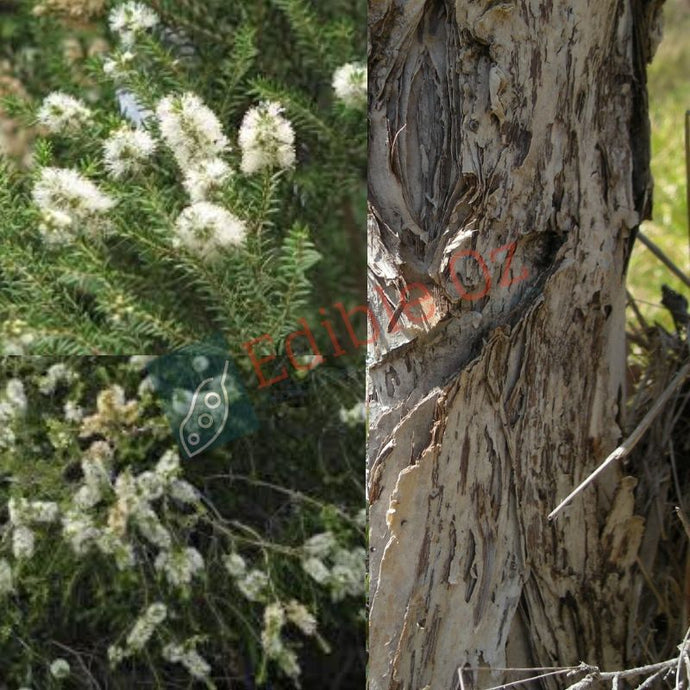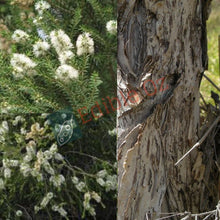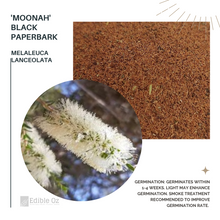Black Paperbark / Rottnest Island Tea-Tree - Melaleuca lanceolata (Moonah) seeds
Regular price
$3.95
Sale
or make 4 interest-free payments of
$0.98 fortnightly with
 More info
More info
Melaleuca lanceolata - Black Paperbark (Moonah, Rottnest Island Tea-tree)
A hardy and ornamental small tree perfect for coastal and inland landscapes.
Quick Facts
- Height: Typically grows as a small tree, suitable for gardens and streetscapes.
- Foliage: Dense and evergreen, providing excellent shade and wind protection.
- Flowers: Creamy white blooms, attracting nectar-feeding birds and insects.
- Soil: Adaptable to clay, loam, and sandy soils.
- Position: Thrives in full sun; tolerates coastal exposure and calcareous soils.
- Climate: Tolerates drought, moderate frost, salt spray, wind, and lime-rich soils.
Why Grow Melaleuca lanceolata?
Black Paperbark is a versatile and resilient tree, ideal for a variety of landscaping purposes. With its adaptability to harsh conditions and its cultural significance, it provides beauty, functionality, and a connection to Australia’s rich heritage.
Cultural Significance
Melaleuca species have been an integral part of Indigenous Australian life:
-
Uses:
- Bark and fibre were used for clothing and baby swaddling.
- Nectar was consumed as a drink.
- Wood and stems were crafted into tools and used for shelter construction.
Practical Applications
- Shade Tree: Dense foliage offers effective sun protection.
- Windbreak & Screen: Ideal for providing privacy and wind protection in exposed areas.
- Street & Verge Planting: Suitable for wider verges and nature strips.
Note: Per the Sewerage Act, ensure trees are planted no closer than 3.5 meters to sewer mains, connections, or pipes.
How to Grow
-
Sowing Instructions:
- Lightly sprinkle seeds on the surface of soil; do not bury.
- Germination is improved with smoke treatment.
-
Position:
- Plant in a sunny location with well-drained soil.
- Tolerates a wide range of soil textures and pH levels.
-
Care Tips:
- Water regularly during establishment; drought-tolerant once mature.
- Prune lightly to shape and maintain size if desired.
- Mulch around the base to retain moisture and suppress weeds.
Uses in Your Garden
- Coastal Landscaping: Thrives in salt-laden, windy conditions, making it ideal for coastal gardens.
- Erosion Control: Helps stabilise soils in degraded or exposed areas.
- Wildlife Habitat: Attracts nectar-eating birds and insects, supporting local biodiversity.
- Ornamental Value: Elegant, creamy white flowers and dense foliage enhance visual appeal.
Germination Tips
- Timeframe: Germination occurs within 1–4 weeks.
- Light: Exposure to light may enhance germination success.
- Pre-Treatment: Smoke treatment is recommended to improve germination rates.
- Moisture: Keep soil consistently moist during germination without waterlogging.
Order Now
Grow the beauty and resilience of Melaleuca lanceolata. With its adaptability, cultural significance, and ornamental charm, Black Paperbark is a valuable addition to any landscape.
Order your Black Paperbark seeds today and grow a versatile and iconic native tree!



